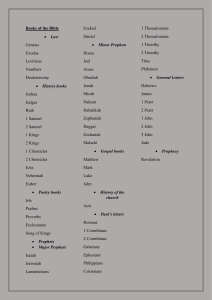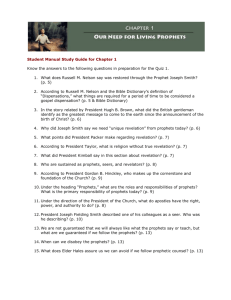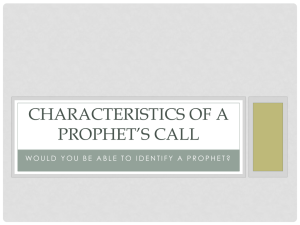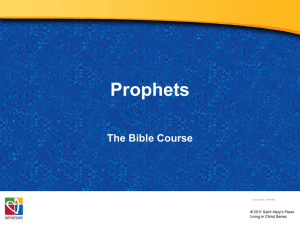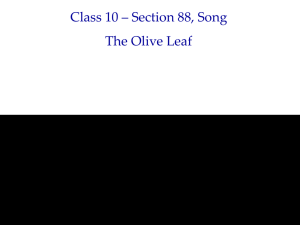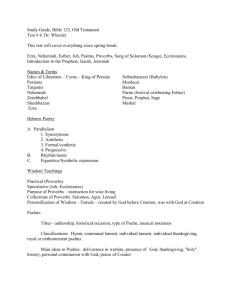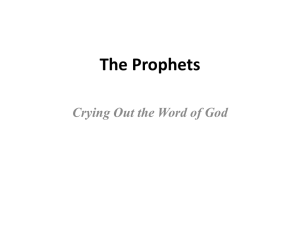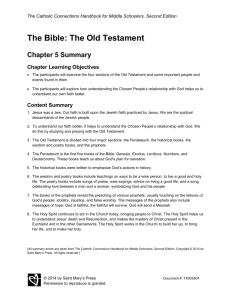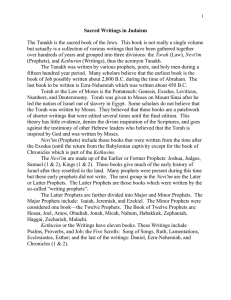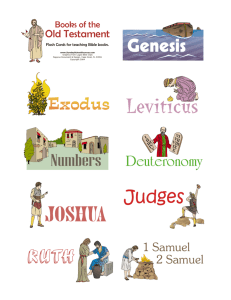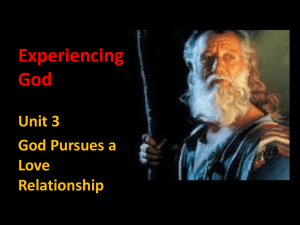Christian Divisions of the Old Testament The Pentateuch (The first
advertisement
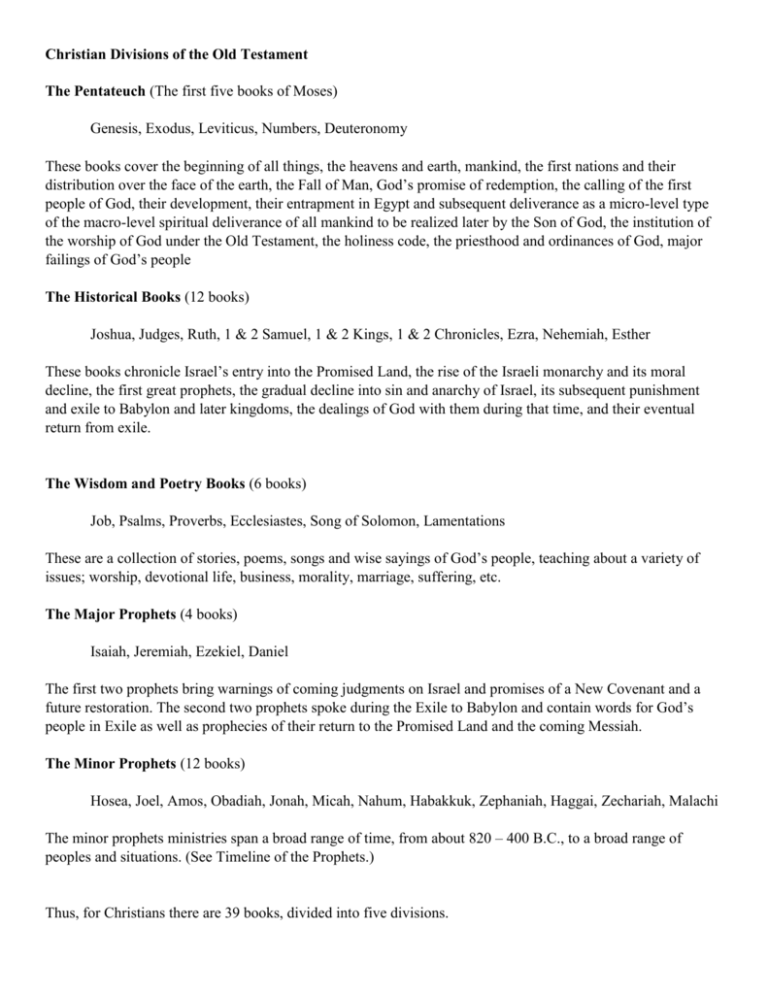
Christian Divisions of the Old Testament The Pentateuch (The first five books of Moses) Genesis, Exodus, Leviticus, Numbers, Deuteronomy These books cover the beginning of all things, the heavens and earth, mankind, the first nations and their distribution over the face of the earth, the Fall of Man, God’s promise of redemption, the calling of the first people of God, their development, their entrapment in Egypt and subsequent deliverance as a micro-level type of the macro-level spiritual deliverance of all mankind to be realized later by the Son of God, the institution of the worship of God under the Old Testament, the holiness code, the priesthood and ordinances of God, major failings of God’s people The Historical Books (12 books) Joshua, Judges, Ruth, 1 & 2 Samuel, 1 & 2 Kings, 1 & 2 Chronicles, Ezra, Nehemiah, Esther These books chronicle Israel’s entry into the Promised Land, the rise of the Israeli monarchy and its moral decline, the first great prophets, the gradual decline into sin and anarchy of Israel, its subsequent punishment and exile to Babylon and later kingdoms, the dealings of God with them during that time, and their eventual return from exile. The Wisdom and Poetry Books (6 books) Job, Psalms, Proverbs, Ecclesiastes, Song of Solomon, Lamentations These are a collection of stories, poems, songs and wise sayings of God’s people, teaching about a variety of issues; worship, devotional life, business, morality, marriage, suffering, etc. The Major Prophets (4 books) Isaiah, Jeremiah, Ezekiel, Daniel The first two prophets bring warnings of coming judgments on Israel and promises of a New Covenant and a future restoration. The second two prophets spoke during the Exile to Babylon and contain words for God’s people in Exile as well as prophecies of their return to the Promised Land and the coming Messiah. The Minor Prophets (12 books) Hosea, Joel, Amos, Obadiah, Jonah, Micah, Nahum, Habakkuk, Zephaniah, Haggai, Zechariah, Malachi The minor prophets ministries span a broad range of time, from about 820 – 400 B.C., to a broad range of peoples and situations. (See Timeline of the Prophets.) Thus, for Christians there are 39 books, divided into five divisions. Jewish Divisions of the Old Testament (Tanakh) For Jews, the Tanakh consists of twenty-four books: it counts as one book each Samuel, Kings, Chronicles and Ezra-Nehemiah and counts Trei Asar (עשר תרי, the Twelve Prophets; literally "twelve") as a single book. The Jewish people saw the Tanakh as divided up into three parts: The Pentateuch or Torah, “Teachings” (Genesis, Exodus, Leviticus, Numbers, Deuteronomy) The Prophets, “Nevi’im” This consists of “the former prophets” (Joshua, Judges, Samuel, Kings) and “the latter prophets” (Isaiah, Jeremiah, Ezekiel, and the 12 Minor Prophets, counted as one book: Hos., Joel, Amos, Obadiah, Jonah, Micah, Nahum, Habakkuk, Zephaniah, Haggai, Zechariah, and Malachi) The Writings, “Ketuvim,” which consist of eleven books in all, the five scrolls or “Megilloth” (Ruth, Song of Solomon, Lamentations, Ecclesiastes, Esther), the poetic books, Psalms, Proverbs, and Job, and other books, Daniel, Ezra-Nehemiah and Chronicles
